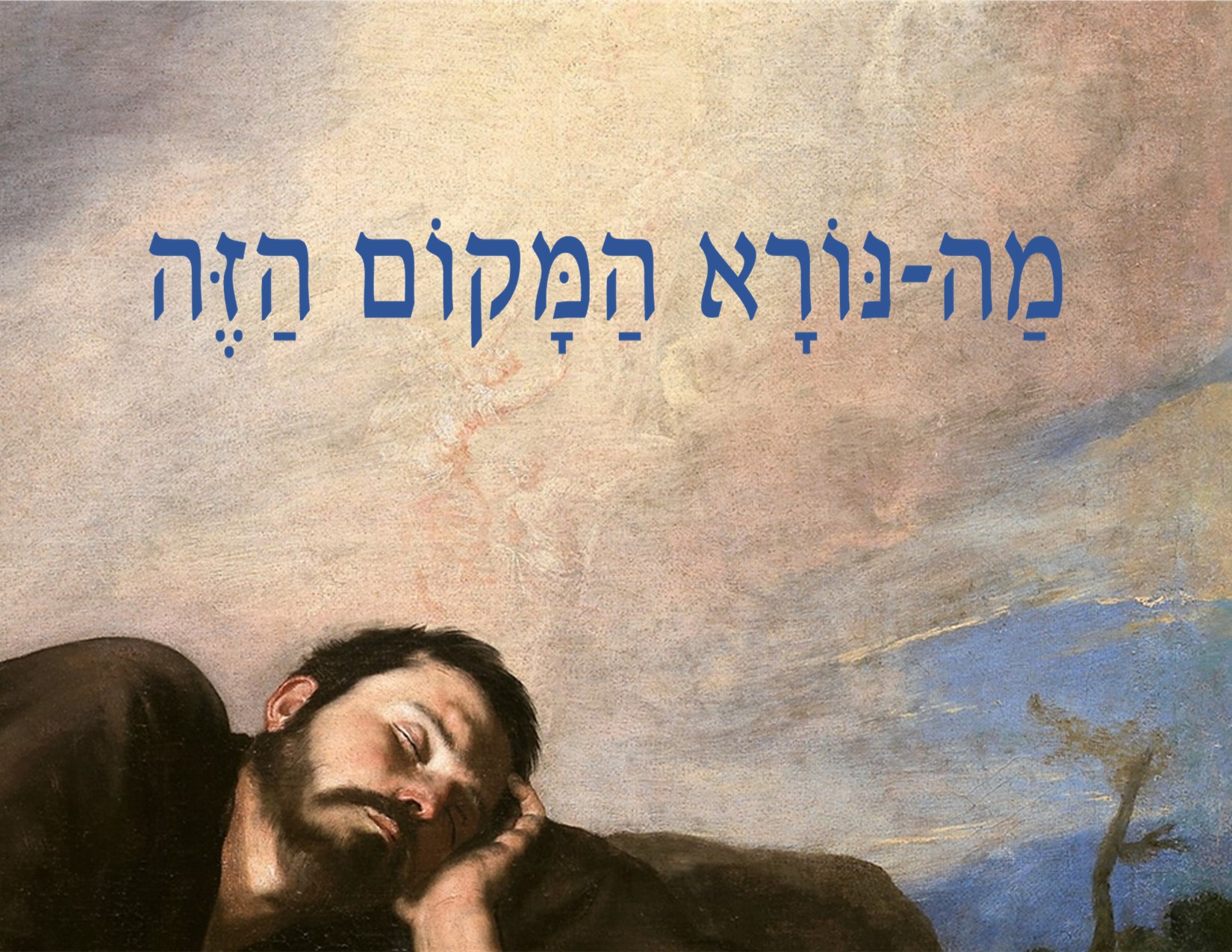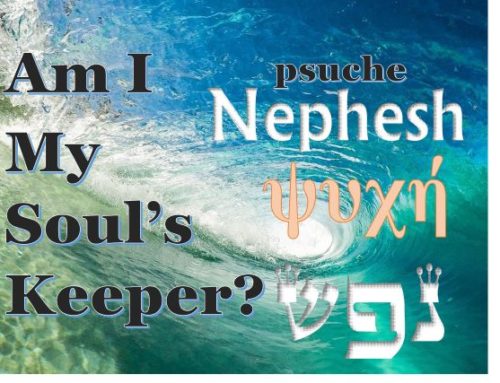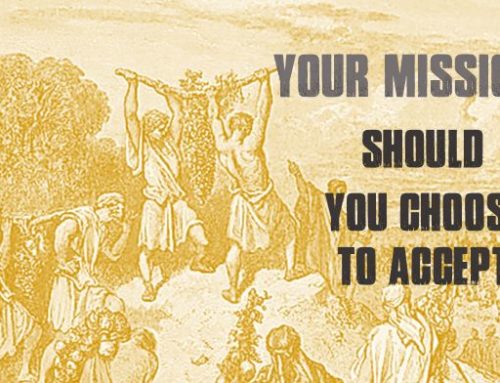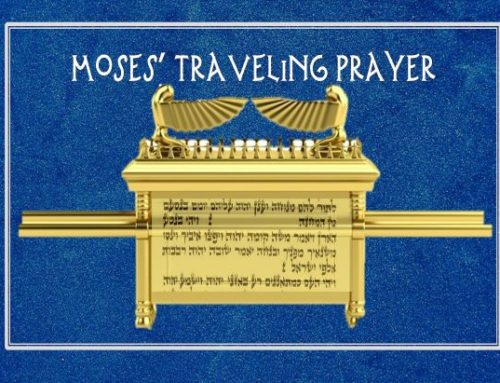Torah Portion Vayeitzei (And he went out). (Gen. 28: 10 – 32:3, Hosea 12: 13-14:10)
“Now Jacob went out from Beersheba and went toward Haran. So he came to a certain place and stayed there all night, because the sun had set. And he took one of the stones of that place and put it at his head, and he lay down in that place to sleep.” Gen. 28. 10-11 NKJV
There is a beautiful Hebrew blessing spoken to those who mourn, “May ‘The Place’ comfort you among the mourners of Zion and Jerusalem.” “The Place” (hamakom) is a special name for the Comforter Himself, the Lord God. Jacob, it says came to the place, or more accurately, hit upon the place. All of us can identify with the feelings of a young person leaving home. Even in optimal circumstances it is painful. Jacob’s was far from optimal. After an exhausting day he came to the place. At the end of strength and sunlight he arranged a stone for a pillow. Seemingly random, just a convenient spot along the road, it was the first of many nights away from home.
These accounts of long ago were written to encourage us in our journey. Maybe we identify with Jacob before leaving home. Perhaps we see ourselves on the path, fearfully looking over our shoulder, or maybe coming to the end of sunlight, seeking a place to rest. God met Jacob at the point of need and the place of promise. His story reminds us that there is a place of provision for us as well. Here are three powerful truths of “the Place” revealed in the story of Jacob.
I. He Hit Upon the Place
“So he came to a certain place and stayed there all night, because the sun had set. And he took one of the stones of that place and put it at his head, and he lay down in that place to sleep.” Gen. 28. 11 NKJV
The King James translates this as, “he lighted upon a certain place”. Others translate it as “hit upon”. The word v’yifga in modern Hebrew described meeting or “bumped into”. He encountered the place where heaven and earth meet, yet, was unaware that providence had guided him. Jewish commentaries note that the unusual word v’yifga (וַיִּפְגַּ֨ע) can also mean to pray or make intercession. Is the text implying that Jacob made his evening prayers in that place? Perhaps it was his habit, as the commentaries suggest to pray in the evening, but it should also not surprise us that such a place would stir one to prayer.
Jacob positioned a rock for a pillow, and after falling asleep he became aware of the spiritual reality of the place. A ladder connected that place to heaven. Angels were ascending and descending, and the Lord Himself stood at the top to speak to reveal Himself to Jacob.
“And behold, the Lord stood above it and said: “I am the Lord God of Abraham your father and the God of Isaac; the land on which you lie I will give to you and your descendants. Also your descendants shall be as the dust of the earth; you shall spread abroad to the west and the east, to the north and the south; and in you and in your seed all the families of the earth shall be blessed…” Gen. 28. 13-14 NKJV
We are often unaware of God’s providential leading. This was a specific place, but we should remember the powerful truth, God is the Place (hamakom). In your weariness, he is there. In your wandering, He is there. Rich Mullins song, “Where You Are” captures the idea beautifully.
“And where you are ain’t where you wish that you was
Well your life ain’t easy and the road is rough
But where you are is where He promised to be
From the ends of the world to every point of need” Rich Mullins
God’s promise to Jacob is an encouragement for all of His children.
“I am with you and will keep you wherever you go, and will bring you back to this land; for I will not leave you until I have done what I have spoken to you.” Gen. 28. 15 NKJV
II. Surely the Lord is in This Place
“Then Jacob awoke from his sleep and said, “Surely the Lord is in this place, and I did not know it.” Gen. 28. 16 NKJV
How easily we see God’s hand after the fact. Hagar heard a voice and her eyes were opened to a well of water. Ruth “happened to come to the part of the field belonging to Boaz”. Moses was tending the flock when he saw the burning bush and heard the voice of God. The Lord knows His sheep and has choreographed our place in history and ordered our steps often without our knowing.
“A man’s steps are of the Lord; How then can a man understand his own way?” Prov. 20.24 NKJV
It will relieve much worry regarding God will, if we first commit to walk in His way, and simply trust Him to navigate turns in the road.
III. How Awesome is this Place!
“And he was afraid and said, “How awesome is this place! This is none other than the house of God, and this is the gate of heaven!” Gen. 28. 17 NKJV
Jacob realized the awesome majesty of the place. The place where Heaven and earth met. The place of the house of God. Every person has an appointment with the place. Paul descried it as an appearing of the grace of God.
” For the grace of God that brings salvation has appeared to all men.” Titus 2. 11 NKJV
Paul wrote those words confidently having met the Lord on the road to Damascus. Before, he had heard about God, now he cried, “Who are you Lord?” (Acts 9. 5) Thomas had his appearance a week after the resurrection. Had he not spent three years with Yeshua, the Messiah? Yes, but the transformative moment came when he saw the risen Messiah and cried out, “my Lord and my God”. (John 20.28) And for each person reading these words, God has prepared the time and “the place” (hamakom) to reveal Himself to you. For Jacob this was not a one-time event, and it should not be for us either.
Jacob awoke from his dream, took the rock previously used for a pillow, and made it a marker. He wanted to know how to find that place again, and indeed he did visit it again. Jacob even poured oil on the rock, and called the place, Bethel, meaning, “house of God”. Many believe that this was the same hamakom visited by Abraham at the binding of Isaac. Solomon later built the Temple on that spot. Nations stream to that location today to pray. But the powerful and encouraging truth is that “The Place” in the person of the Lord Himself, goes with us, and never leaves us.
Conclusion
We began with the Hebrew blessing of comfort. “May ‘THE PLACE’ (the Almighty) comfort you among the mourners of Zion and Jerusalem”. But how do we get to “The Place”? In the classic movie “Brigadoon”, two hunters in the hills of Scotland chance upon a marvelous village appearing in the mist. The mystery is that this village only appears once in a hundred years and for only one day. Jacob did not find a place like Brigadoon, a once in a lifetime encounter fading into his memory. No, God went with him. When Jacob went to Syria God went with him. When he made his sojourn to Egypt, God was there also. His promise to us is the same. He will never leave nor forsake us. (Heb. 13. 5) And our greatest comfort is that Yeshua is both preparing our place with the Father, and He is the way to the Father.
“In My Father’s house are many mansions; if it were not so, I would have told you. I go to prepare a place for you. And if I go and prepare a place for you, I will come again and receive you to Myself; that where I am, there you may be also. And where I go you know, and the way you know.” Thomas said to Him, “Lord, we do not know where You are going, and how can we know the way?” Jesus said to him, “I am the way, the truth, and the life. No one comes to the Father except through Me.” John 14. 2-6 NKJV
So how do we find our way? If we know the Messiah, we already know the way. May “The Place” comfort and encourage you and may Jacob’s revelation and words be yours. “How awesome is this place! This is none other than the house of God.”
Shavua Tov from Zion
[/fusion_text][/fusion_builder_column][/fusion_builder_row][/fusion_builder_container]
